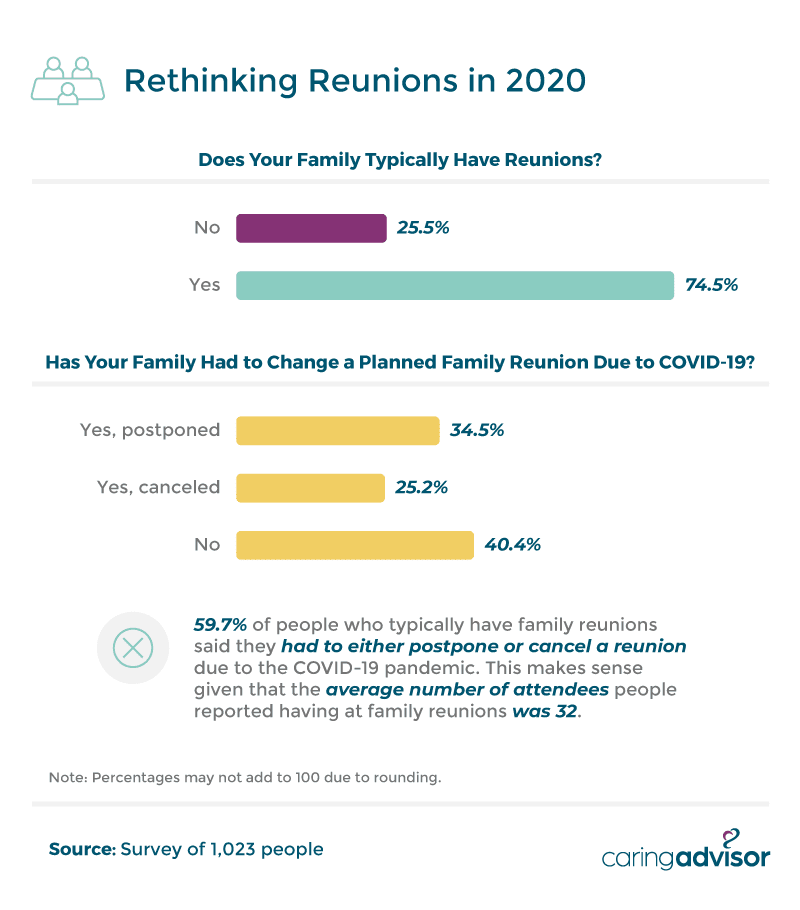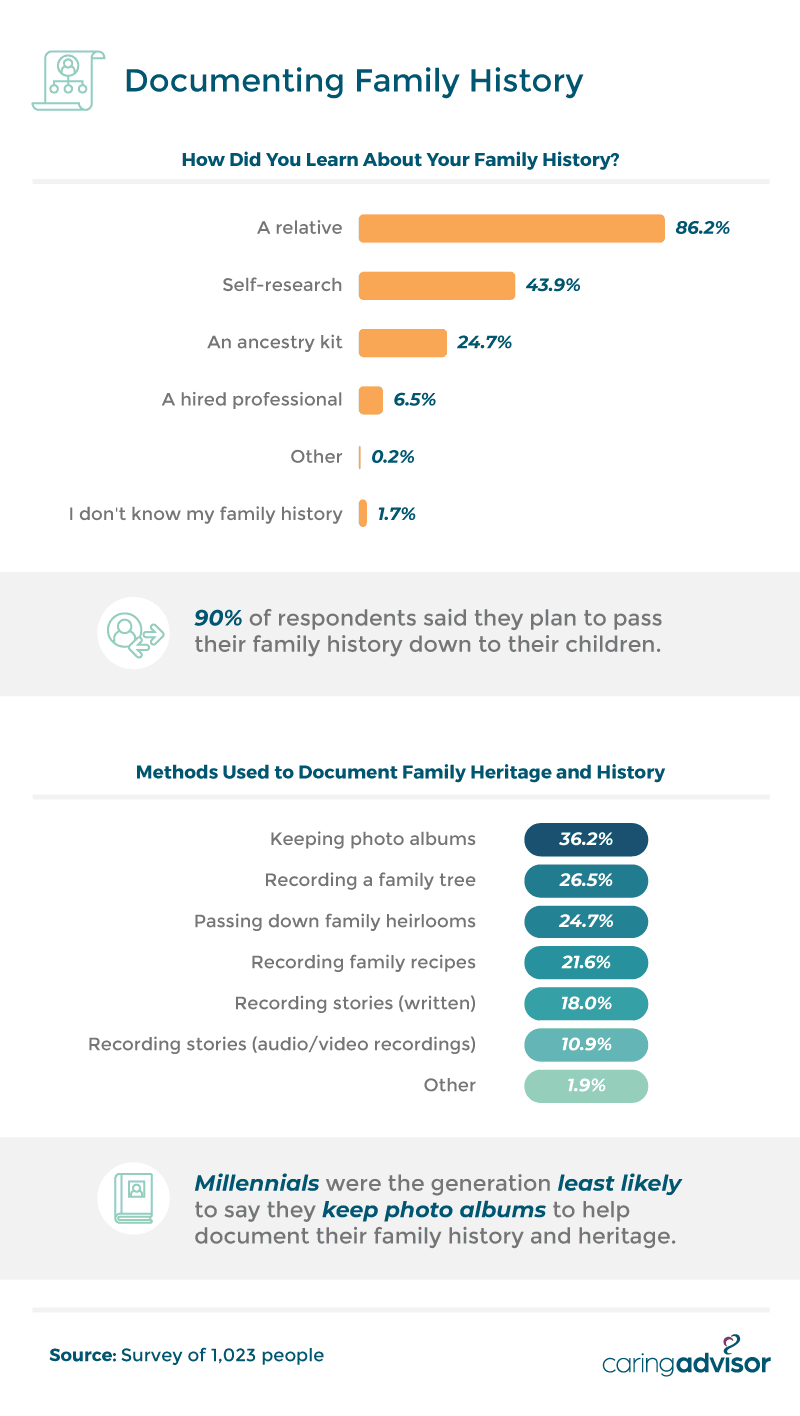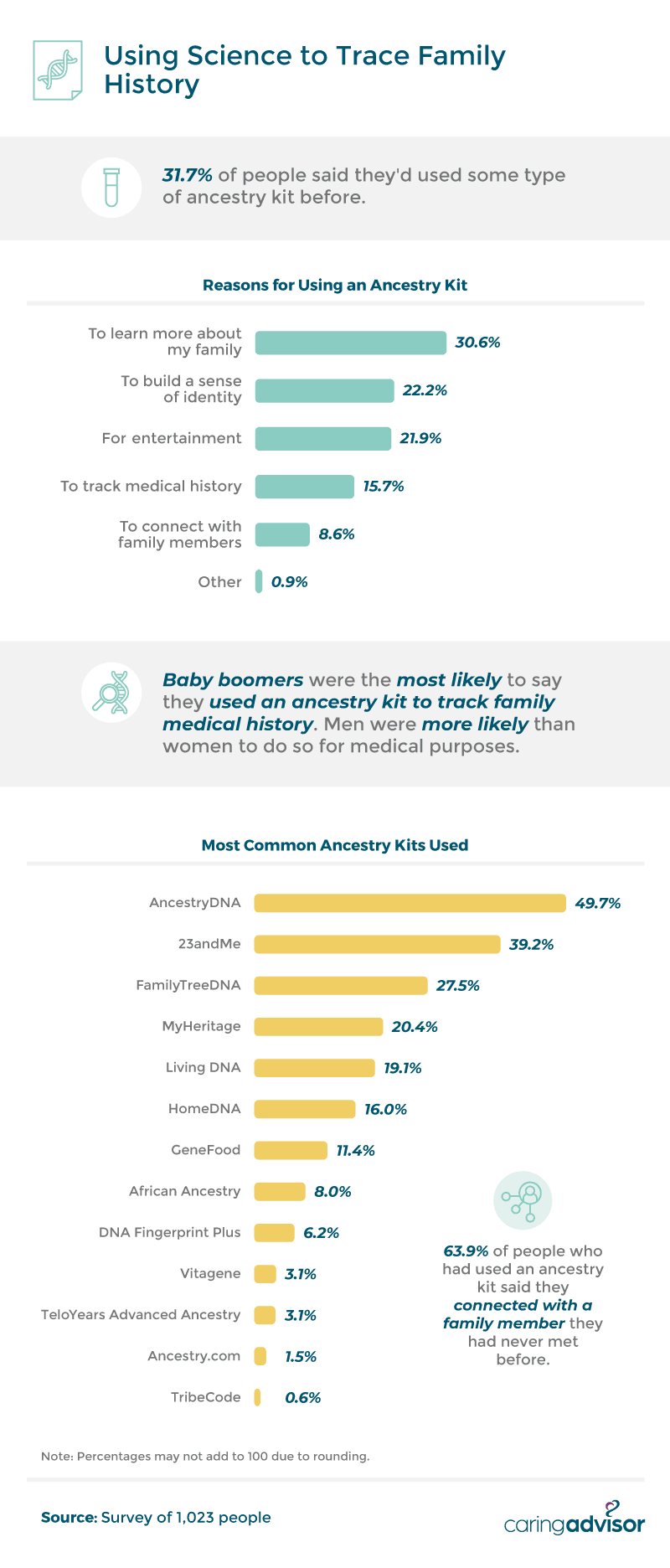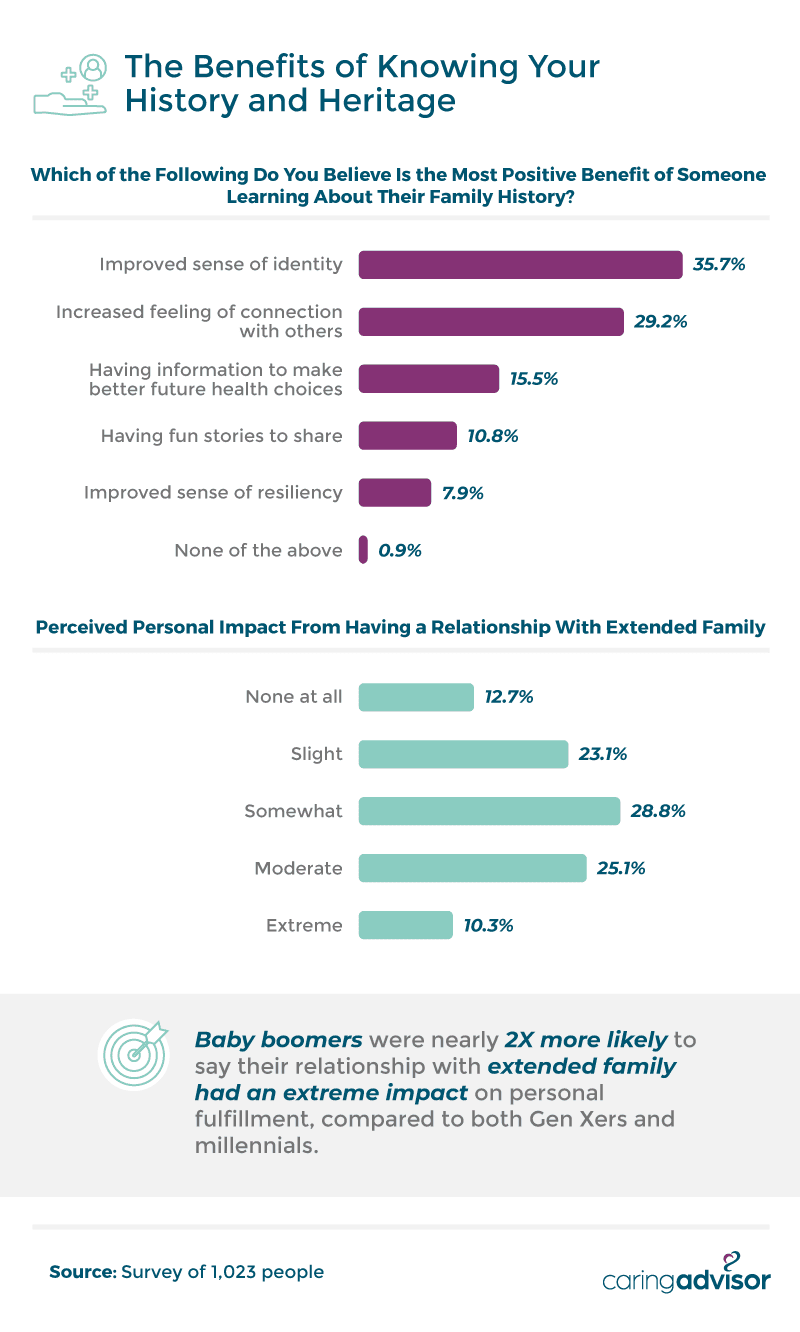
In a year of social distancing, family connection has never been more important. Staying connected to loved ones reduces both physical and mental health risks by improving immunity and emotional well-being. Amid all the turmoil of COVID-19, we wanted to examine how knowing your family history can impact your life and peace of mind.
How well do we know our family heritage? And what benefits can learning about our history bring? We surveyed over 1,000 people about their knowledge of their family history and how they’ve documented their ancestry. We then looked at how learning about our family history and heritage can benefit us today. Read on to see what we discovered about the importance of family history.
How Important Is Family, Really?

When we asked people how important it is to know their family history, less than one-quarter of respondents said it was extremely important. When we broke down responses by generation, a clear trend emerged with younger generations more likely to rate knowing family history as less important. Baby boomers were the most likely to say that knowing family history is extremely important and the least likely to rate it as not at all important. Millennials, by contrast, were the most likely to say knowing family history is not at all important.
A link could be made between these generational trends and the fact that some psychologists believe millennials, who grew up alongside the rise of the internet and social media, are more narcissistic and self-absorbed than other generations. But there is also a case to be made for the global rise of individualism. A study across 78 countries found that people are increasingly valuing friends over family.
Despite clear trends away from valuing family history, respondents who did know their family history were the most likely to say that they knew their family history as far back as three or more generations. Less than 8% of respondents knew only their parent’s history, compared to almost 64% who knew three or more generations back.
A majority of people also reported they knew their maternal side of the family better than their paternal side, which confirms other research that has found grandchildren are closer to their maternal grandparents. Some attribute this to the fact that mothers tend to have more direct influence in their children’s lives and tend to have complicated relationships with their paternal mother-in-law. Scientists believe our closeness with our maternal family is due to the fact that we can always be certain who our mother is, whereas our paternal lineage may fall into question.
Social Distancing May Lead to Stronger Future Connections

No current study of social relations would be complete without addressing the elephantine change in the room: the impact of COVID-19 on our interactions. Nearly 60% of people who typically have family reunions said the pandemic forced them to either postpone or cancel their reunion. This makes sense given family reunions average 32 attendees, which is more than federal guidelines say is safe.
Family reunions may be only a temporary casualty of the COVID-19 pandemic, however. In fact, the pandemic may have a positive long-term impact on our connection with our family. Research suggests that we may become less individualistic after the coronavirus pandemic, as disease tends to foster more collective attitudes prioritizing group conformity and societal traditions. So while we may be forced to keep our distance this year, there may be hope for more connections in all of our futures.
How We Document Our Heritage

How we choose to document and share our family history can be as unique as the history itself. We asked respondents how they learned about their family history to see if any interesting trends emerged. By far the most common way to learn about family history is through a relative. Over 86% of respondents learned about their family history from a relative. People were nearly twice as likely to learn about family from a relative than they were to learn about it via self-research, which was the second most common method. Less than 1 in 4 respondents said they’d used a kit to learn about family history. And only 6.5% hired a professional to help them in their research.
There was less disparity in the methods used to document family history. By and large, the most common documentation method was photo albums, but recording family trees and passing down family heirlooms were also popular. Millennials were the least likely to say they keep photo albums to help document their family history and heritage. It appears physical photo albums may become a thing of the past in the hands of millennials.
While their methods of learning about and documenting family history may vary, one thing nearly all respondents agreed on was that they planned to pass their family history down to their children. Perhaps the pandemic is the perfect time to prepare for this, such as by creating an oral history for your family so future generations can learn from their relatives, too.
The Science Behind Family History

While ancestry kits were a far less common means of learning about family history than relatives, there is no denying the fact that ancestry kits are becoming increasingly popular. This may be in part due to the fact that these kits have never been cheaper or easier to purchase, which is also making them popular holiday gifts.
Over 1 in 3 respondents said they had used an ancestry kit before. The primary reason people used ancestry kits was to learn about family history. Other reasons included building a sense of identity, and for entertainment. Over 15% used an ancestry kit to track medical history, with baby boomers being the most likely to cite this as the reason for using a kit. Men were also more likely than women to use kits to obtain medical information.
If you decide to gift an ancestry kit this holiday season, you may want to target AncestryDNA or 23andMe. These were the two most popular kits used by respondents. Nearly 50% of people who used an ancestry kit said they used AncestryDNA. Whichever kit you choose, chances are it will help foster family connection: Nearly 64% of people who’d used a kit said it helped them connect with a family member they’d never met.
Why Know Your Family History and Heritage?

In closing, we asked respondents what the greatest benefit was from learning about their family history. The majority of respondents cited improving their sense of identity, self-worth, and belonging. A sense of belonging has been linked to greater happiness and personal satisfaction and can increase our sense of connection, the second-most commonly cited benefit of learning about family history.
The majority of people said their relationship with their extended family had an impact on personal fulfillment – baby boomers most of all. Boomers were nearly twice as likely as Gen Xers and millennials to say their relationship with their extended family had an extreme impact on their personal fulfillment. This emphasizes findings that family connection becomes increasingly important as we age.
Respondents also saw having more information to make better health decisions as a key benefit of knowing family history, which ties back to the finding above about the prevalence of ancestry kits being used to learn about a person’s medical history. And we can’t deny that knowing your family history makes you an engaging relative by giving you more fun stories to share.
Of particular relevance in our current times is the fact that knowing your family history can help improve your sense of resiliency, according to our study. Resiliency is your ability to navigate challenging circumstances, such as the COVID-19 pandemic. The more resilient you are, the more able you’ll be to get through life’s trials and tribulations and the more likely you’ll be to grow and improve your life along the way.
Staying Connected
Family heritage plays an integral role in who we are. From shaping our perceptions of ourselves and our sense of belonging to helping us make more informed medical decisions based on our family medical history, knowing where you come from brings a host of benefits. Our research shows that these benefits are strongest for seniors, who are at greater risk of health risks due to loneliness and social isolation.
At CaringAdvisor.com, we’re on a mission to ensure everyone has the care they need when they need it. Our experts are here to help you choose the right care for yourself and your loved ones, from assisted living and skilled nursing homes to memory care or independent living arrangements.
Methodology
We surveyed 1,023 people about knowing their family history and how it impacts their life. Respondents were 50% women and 49.7% men. Two respondents were nonbinary, one respondents was agender, and one respondent chose not to disclose their gender. The average age of respondents was 39.6 with a standard deviation of 12.7 years.
Data on how people learned about their family history, methods they used to document their family history, reasons for using ancestry kits, and the types of ancestry kits used were collected from check-all-that-apply questions. Therefore, percentages won’t add to 100.
Limitations
The data we are presenting rely on self-report. There are many issues with self-reported data. These issues include, but are not limited to, the following: selective memory, telescoping, attribution, and exaggeration.
Fair Use Statement
Sharing your knowledge can be empowering. We’d love for you to share the knowledge you gleaned from this article, but ask that you only do so for noncommercial use and to please include a link back to this page when you do. Thank you!
